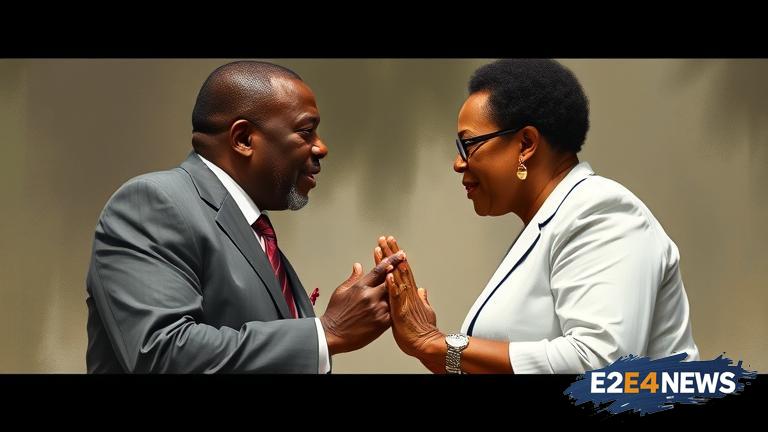The Caribbean Community (CARICOM) has been facing a significant challenge to its unity and solidarity in recent times. A verbal spat between the Prime Minister of Antigua and Barbuda, Gaston Browne, and the Leader of the Opposition in Trinidad and Tobago, Kamla Persad-Bissessar, has exposed deep-seated divisions within the regional bloc. The disagreement between the two leaders has sparked a heated debate about the future of CARICOM and its ability to effectively address the pressing issues facing the region. The row began when Browne accused Kamla of undermining the solidarity of CARICOM by her comments on the recent election in Guyana. Kamla had expressed concerns about the electoral process in Guyana, which Browne saw as an attempt to interfere in the internal affairs of a fellow CARICOM member state. The situation escalated when Kamla fired back at Browne, accusing him of being hypocritical and selective in his criticism. The exchange has raised concerns about the ability of CARICOM leaders to work together to address the common challenges facing the region, including climate change, economic development, and security. The incident has also highlighted the need for greater transparency and accountability within CARICOM, as well as the importance of respecting the sovereignty and independence of member states. Despite the challenges, CARICOM remains a vital institution for promoting regional integration and cooperation. The organization has a long history of promoting economic development, social justice, and cultural exchange among its member states. However, the current dispute between Browne and Kamla has raised questions about the effectiveness of CARICOM’s decision-making processes and its ability to resolve conflicts in a timely and effective manner. The incident has also sparked a wider debate about the role of leadership in promoting regional unity and solidarity. Many have called for greater leadership and vision from CARICOM heads of government to address the pressing issues facing the region. Others have argued that the organization needs to be more inclusive and representative of the diverse interests and perspectives of its member states. The dispute between Browne and Kamla has also highlighted the importance of effective communication and diplomacy in resolving conflicts and promoting regional cooperation. The incident has raised concerns about the potential for further divisions and conflicts within CARICOM, which could undermine the organization’s ability to achieve its goals and objectives. However, it has also created an opportunity for CARICOM leaders to reflect on the organization’s strengths and weaknesses and to identify areas for improvement. The current challenge facing CARICOM is not unique to the organization, as many regional blocs around the world are facing similar challenges. However, the incident has highlighted the need for CARICOM to be more proactive and responsive to the needs and concerns of its member states. The organization needs to be more effective in promoting regional integration and cooperation, while also respecting the sovereignty and independence of its member states. The dispute between Browne and Kamla has also raised questions about the role of civil society and the private sector in promoting regional unity and solidarity. Many have argued that these stakeholders have a critical role to play in promoting regional cooperation and integration, and that they should be given a greater voice in CARICOM’s decision-making processes. The incident has also highlighted the importance of promoting a culture of dialogue and cooperation within CARICOM, and of fostering greater understanding and respect among the organization’s member states. Ultimately, the current challenge facing CARICOM is an opportunity for the organization to reflect on its strengths and weaknesses and to identify areas for improvement. By working together and promoting a culture of dialogue and cooperation, CARICOM leaders can overcome the current divisions and promote a more united and prosperous region. The future of CARICOM depends on the ability of its leaders to work together to address the pressing issues facing the region, and to promote a culture of regional unity and solidarity. The organization has a critical role to play in promoting economic development, social justice, and cultural exchange among its member states, and it is imperative that its leaders work together to achieve these goals. The current dispute between Browne and Kamla has raised concerns about the ability of CARICOM leaders to work together, but it has also created an opportunity for the organization to reflect on its strengths and weaknesses and to identify areas for improvement.
